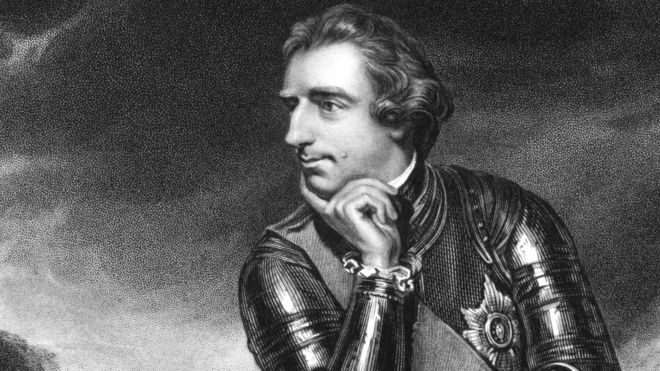
On this day, August 3rd, in 1797, Jeffrey Amherst, who twice refused the position of commander of British forces against the rebelling American patriots, dies at his estate, called Montreal, in England.
Amherst is remembered foremost for victory against the French in the Seven Years’ War, culminating in the surrender of Montreal–after which Amherst named his estate–and Canada by the French to the British in 1760. This triumph was matched in magnitude by the notoriety he gained through his mishandling of Indian affairs following the war. Amherst ignored British Superintendent of Indian Affairs Sir William Johnson’s advice to continue the tradition of gift exchange with British-allied Indians following the surrender of Canada; Amherst believed in the efficacy of punishment for poor behavior instead of rewards for good behavior. Thus, he curtailed gift-giving and would eventually become the first military strategist to knowingly engage in biological warfare. Most infamous was Amherst’s use of smallpox-infected blankets to spread the deadly disease among Native Americans.
Western Indians had begun a series of frontier attacks known as Pontiac’s Rebellion in the spring of 1763. After this pan-native uprising enjoyed some success, Amherst suggested to Colonel Henry Bouquet that the British might expose the rebelling Indians to smallpox. Bouquet suggested infected blankets as an effective means of achieving Amherst’s goal, a supposition that proved correct when a smallpox epidemic engulfed Ohio Valley natives a few months later. Although exact numbers are difficult to ascertain, typically three-quarters of the population died in such outbreaks.
Although Amherst became the governor of Virginia in 1759 as a reward for his military success, he never served in the role, returning to Britain in November 1763. He was later twice asked to return to North America to lead Britain’s efforts to put down the Patriot rebellion, but he declined, first in 1775 and again in 1778.



Be the first to comment